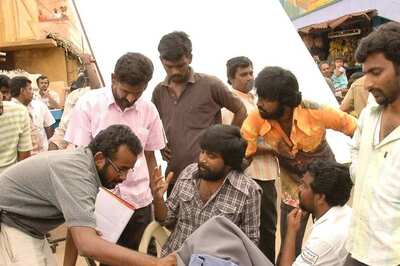
views
The Supreme Court has said that lack of poison in the viscera report alone cannot be treated as conclusive proof of the fact the victim has not died of poison.
A bench of Justices JB Pardiwala and Prashant Kumar Mishra said, “We find it difficult to take the view that in the absence of any positive viscera report, the prosecution could be said to have failed to establish its case.”
The apex court dismissed an appeal filed by Buddhadeb Saha, his father and a younger brother against concurrent findings of the Calcutta High Court and Burdwan court holding them guilty of dowry death, and other offences and punishment of seven years’ rigorous imprisonment following suicide of his wife Tuli Shah within two months of their marriage in 2011.
The appellants contended that the prosecution has not been able to establish the case on hand to be one of unnatural death. They said the post-mortem report does not say anything about the exact cause of death. Even the histopathology report is silent about any traces of poison in the viscera, they contended.
The state counsel said Section 113B of the Indian Evidence Act, 1872 raised a presumption against the accused. He pointed out that due to the long delay in forwarding the sample of viscera collected during the course of post-mortem to the Forensic Science Laboratory, the histopathology report is silent in so far as any traces of poison being found in the viscera.
The court, while citing the medical officer’s report, said, “There is intrinsic evidence on record to indicate that the case on hand is one of suicide by poison.”
It also pointed out, “Unfortunately, in the case on hand, the viscera was received by the FSL for chemical analysis on February 22, 2012 that is after a period of almost five months.”
The bench referred to research article titled, “Negative viscera report and its medico-legal aspects”, which stated that in many cases, the viscera report is negative on three major bases, namely it can be procedure based, sample based or lab based.
The court said it is possible that there may not be traces of poison as pointed out in ‘Mahabir Mandal v. State of Bihar’ (1972) after referring the Modi’s Medical Jurisprudence and Toxicology (Seventeenth edition).
“In a number of cases, where the deceased dies as a result of poisoning, it is difficult to successfully isolate the poison and recognise it. Lack of positive evidence in this respect would not result in throwing out the entire prosecution case, if the other circumstances clearly point out the guilt of the accused,” the bench said.
While dealing with a case of circumstantial evidence, the court has to be circumspect, it should not unwittingly fall into the dangerous trap which the Constitution Bench in case of ‘Raghav Prapanna Tripathi v. State of UP’ (1963) has cautioned to be guarded against.
The bench, thus, concluded that it should not interfere with the concurrent findings recorded by the two courts below.



















Comments
0 comment